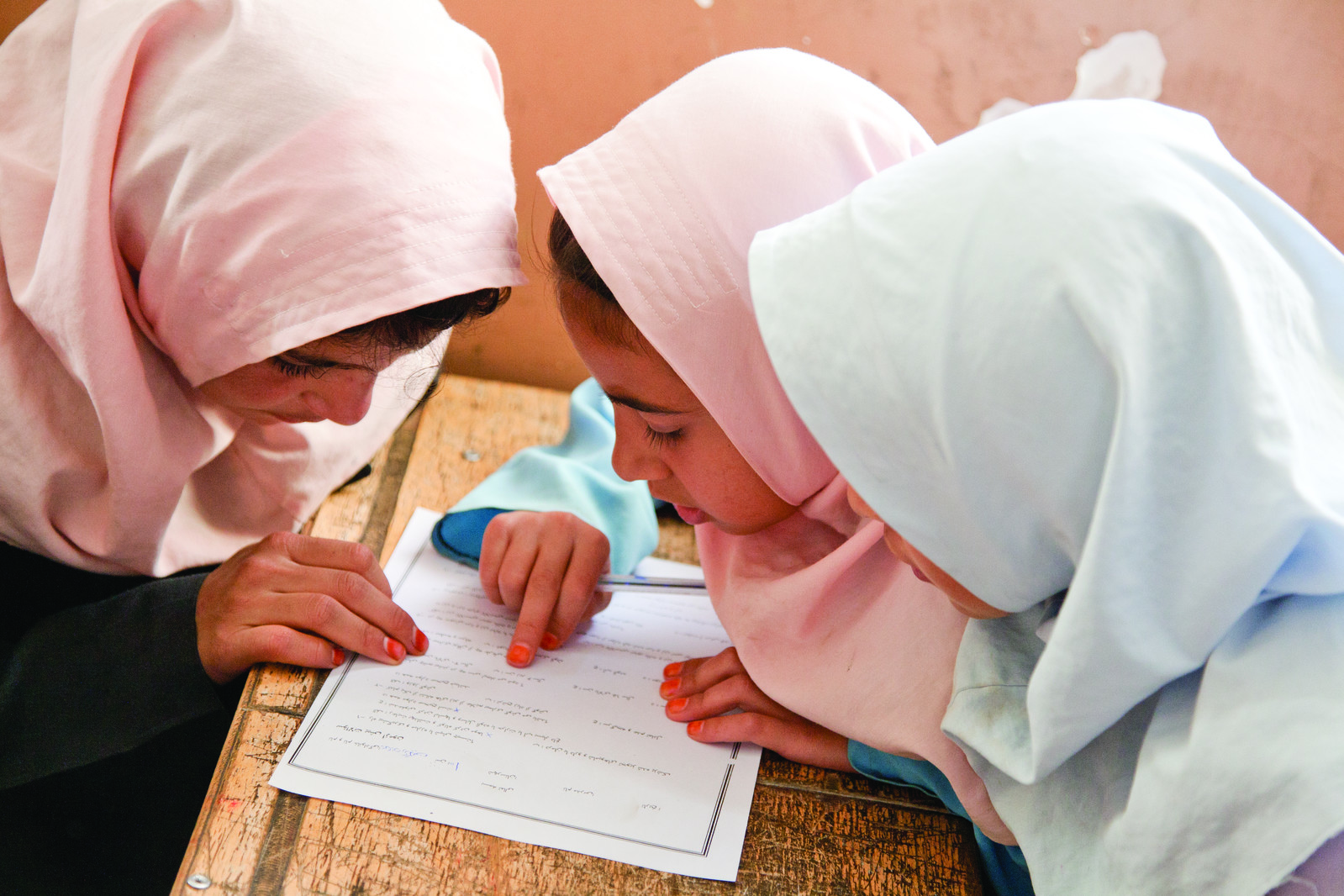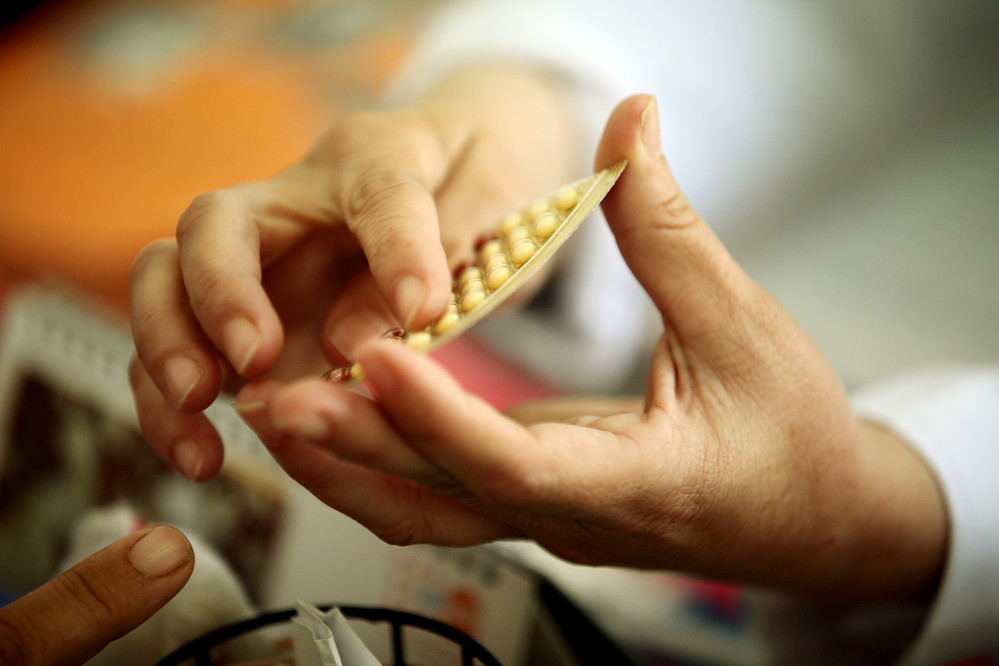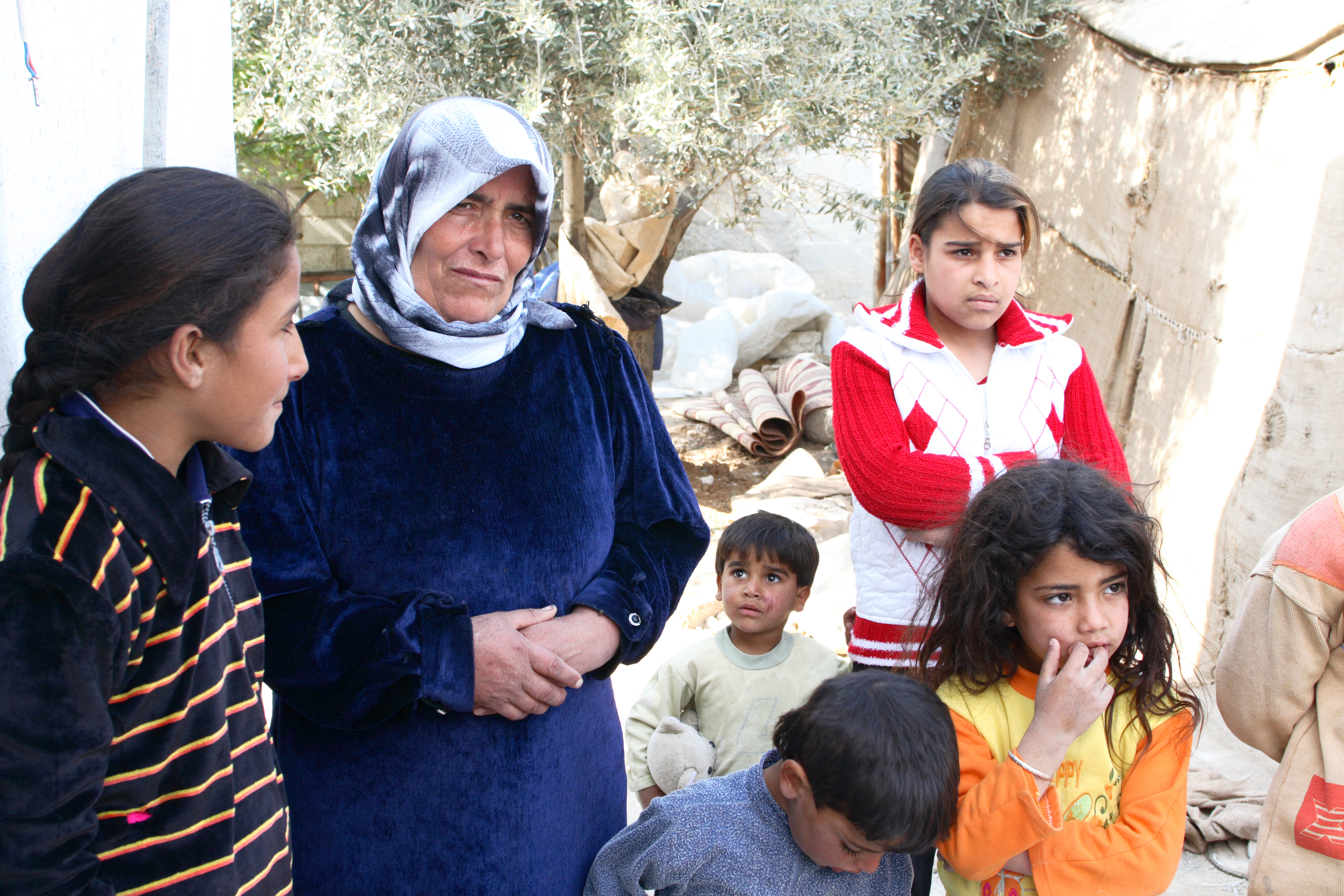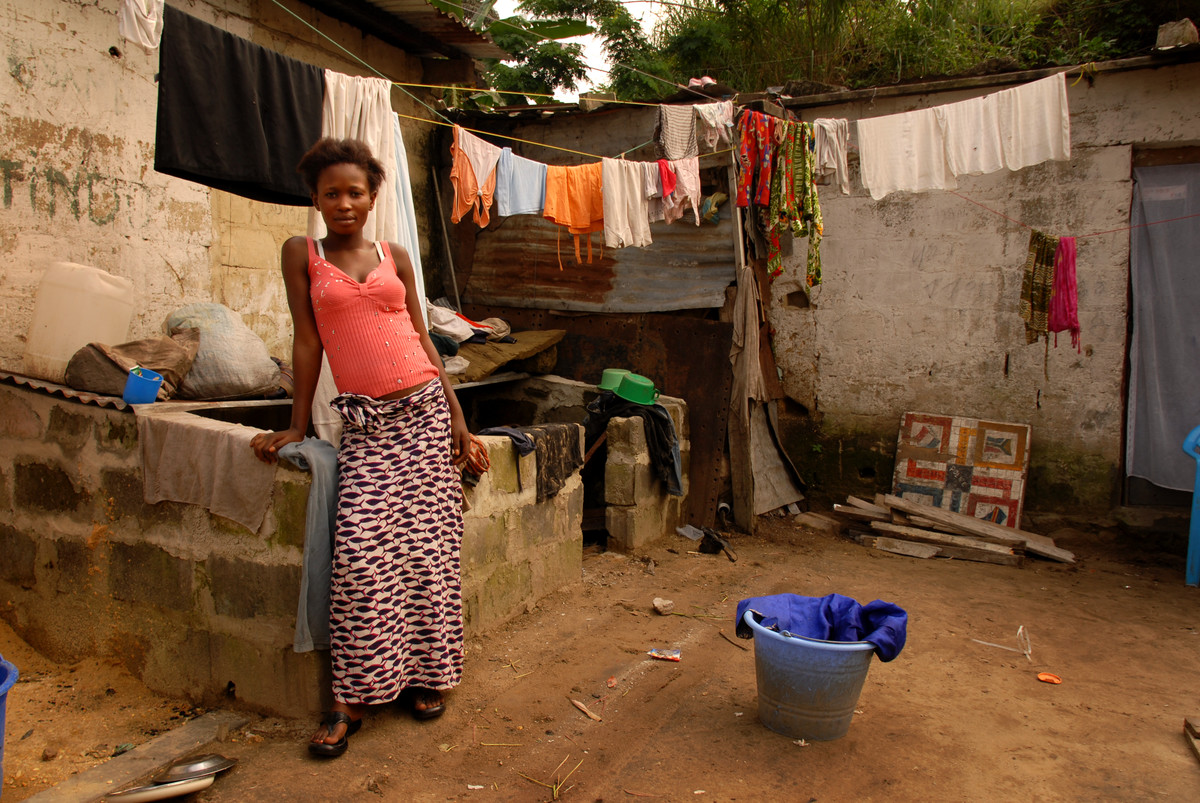
| 16 September 2016
Letter from Tewodros Melesse: "Ask for sexual and reproductive rights for refugees and migrants"
Dear friends, colleagues and partners, As September 19th, the date for United Nations Summit on Refugees and Migrants, approaches we can’t help but to continue to be overwhelmed by the rising number of refugees across the globe and their growing needs. It has become clear that the global community will have to take strong, committed and focused actions in order to ensure that the needs of those vulnerable populations are met. Children, the elderly and women are the ones most at risk in these perilous situations. We need to ensure that their specific needs do not go unnoticed. During this year’s World Humanitarian Summit in Istanbul, UN Member States, civil society and other stakeholders made commitments to increase their support in emergency situations. The Summit on Refugees and Migrants presents another unique opportunity for Member States to show resilient support. In the final draft of the Summit’s outcome document great strides were made in ensuring women’s rights and needs were addressed. Through strong advocacy efforts from IPPF UN Liaison Office, United Nations agencies and strong Member State commitment we were able to secure language that is a great step forward in access to sexual and reproductive health services. Specifically, thanks to our work, the declaration promises to: “…ensure that our responses to large movements of refugees and migrants mainstream a gender perspective, promote gender equality and the empowerment of all women and girls, and fully respect and protect the human rights of women and girls. We will combat sexual and gender-based violence to the greatest extent possible. We will provide access to sexual and reproductive health-care services...” The necessity for sexual and reproductive health and rights in humanitarian situations is critical. We, therefore, ask you to include in your national statements during the Summit on Refugees and Migrants Summit, the unequivocal requirement for the sexual and reproductive rights of refugee and migrant women to be fulfilled and that sexual and reproductive health services be systematically included in the refugee crisis response. I thank you in advance for the attention given to this very important matter and hope to count on you to support this key action. Together, we can make a difference in women’s lives, and bring to those that have lost everything a little bit of hope for the future. Yours Sincerely, Tewodros Melesse

| 06 September 2016
IPPF responds to the launch of UNESCO’s Global Education Monitoring Report
IPPF welcomes UNESCO’s 2016 Global Education Monitoring Report (GEMR) launched today, which sheds stark light on how off track we are in meeting education targets adopted as part of the Sustainable Development Goals (SDGs) only a year ago. Education is a powerful tool to empower girls and is considered a key pathway to future employment and earning. Educated women are more likely to marry later, use family planning and access health care; and to understand their rights and have the self-confidence to act on them.[1] Each additional year of schooling for girls improves their employment prospects, increases future earnings by about 10 per cent and reduces infant mortality by up to 10 per cent.[2] IPPF notes that the GEMR affirms comprehensive sexuality education “as one of the most pressing and universal priorities for the health, well-being and development of young people”. IPPF’s own programmes and research support the central role of CSE in delivering better outcomes for young people [3]; programmes delivered in schools, paired with accessible youth-friendly health services, have been shown to be not only cost-effective, but also cost saving for governments.[4] Evidence shows that education not only plays an important role in preventing negative sexual and reproductive health outcomes, but can also promote gender equality and human rights. There is convincing evidence for governments to invest in CSE that includes a focus on gender, rights and empowerment. Even though there has been progress, with many countries adopting sound policies and scaling up there programming of CSE, implementation is often nowhere near good enough and does not always reach young people who are not in school. As the GEMR shows, measuring progress towards countries’ implementation of CSE is not adequate and initiatives to monitor national implementation of programmes must address the tension between national values and commitment to a global agenda. SDG target 4.7[5] introduces education for global citizenship and sustainable development, explicitly linking education to other Sustainable Development Goals (SDGs), highlighting the transformative aspirations of the new global development agenda. Part of this aspiration must include enabling young people to realize their rights, by challenging and changing social norms, by empowering them, and allowing them to make informed choices about their health. The GEMR launched today sends a loud and clear message to governments around the world. Business as usual will not suffice. In order to respond to the growing education and health gaps that are disproportionately affecting the most marginalized young people across the world, IPPF urges governments to implement high quality sustainable CSE programmes that encompass information and education about sexual and reproductive health, gender, rights and empowerment principles, and that encourage critical thinking in young people. Only then will a transformative development agenda be possible. Read more about IPPF’s position on CSE in our latest policy report: [1] USAID. Op. cit.; United Nations Millennium Project Task Force on Gender Equality (2005) Taking Action: Achieving Gender Equality and Empowering Women. This contributes to their social empowerment and status: Eyben R (2011) Supporting Pathways of Women’s Empowerment: A Brief Guide for International Development Organisations. Pathways Policy Paper. Brighton: Pathways of Women’s Empowerment. [2] World Bank (2002) Opening Doors: Education and the World Bank. Available at Accessed 14 January 2015. [3] IPPF (2016) Everyone’s right to know: delivering comprehensive sexuality education for all young people. [4] UNESCO (2011) Cost and Cost-effectiveness Analysis of School-based Sexuality Education Programmes in Six Countries. Geneva: United Nations Educational, Scientific and Cultural Organization. [5] Target 4.7 states ‘By 2030, ensure that all learners acquire the knowledge and skills needed to promote sustainable development, including, among others, through education for sustainable development and sustainable lifestyles, human rights, gender equality, promotion of a culture of peace and non-violence, global citizenship and appreciation of cultural diversity and of culture’s contribution to sustainable development.’

| 17 June 2016
IPPF responds to Grand Bargain on Humanitarian commitments
Matthew Lindley, IPPF Humanitarian Transition Lead, comments on the Grand Bargain commitments from the World Humanitarian Summit. “There is no denying that sexual and gender-based violence, unwanted pregnancies, early and forced marriage, trafficking, sexually transmitted infections (including HIV), maternal morbidity and death increase in humanitarian situations. Any humanitarian effort needs to take a long view as the average time that people may be displaced or in camp can be a staggering 20 years. That is enough time for a woman to get pregnant, have a child and for a child to reach adolescence. The current humanitarian system has failed women and girls time after time, year after year. As traditional humanitarian funding and organizations largely concentrate on food, shelter, WASH (Water, Sanitation and Hygiene), livelihoods, nutrition and public health but not on sexual and reproductive health and rights as a lifesaving concern. The Grand Bargain is a welcomed move towards a vision where a comprehensive and collaborative approach is taken to save lives and with greater investment. Yet while there have been many discussions at the Summit around how women and girls and young people are particularly at risk and quite simply not able to access basic services, we have not seen this translated within the document. There is still no clear commitment to this area for core funding at all. We need to see more commitment to this area with core humanitarian funding for comprehensive sexual and reproductive health services as a matter of priority if humanitarian efforts are truly going to ensure that no one is left behind. “

| 31 May 2016
Pakistan’s contraceptive advertising ban reversal welcomed by IPPF in South Asia
Ms. Anjali Sen, Regional Director, IPPF-South Asia Region said “It comes as a huge relief that Pakistan Electronic Media Regulatory Authority (PEMRA) has decided to reconsider its blanket ban on all advertisements of contraceptives in the electronic media. In the first place, it was an ill-considered order in the backdrop of the fact that Pakistan has the highest population growth, birth and fertility rates among the South Asian countries, including Bangladesh, India, Sri Lanka, the Maldives, Bhutan and Nepal. This blanket ban had raised serious questions because the Contraceptive Prevalence Rate (CPR) for women in reproductive age in Pakistan is an abysmal 35.40, as per 2013 figures. Given the realities of fertility rates and population growth in Pakistan, the Pakistani policy makers must understand that information on contraceptive choices is the key. From around the world, we have many examples on how a desire for smaller families have led to greater investments in family planning, which have helped transform the age structure and consequently contributed to overall well-being. If the power of media, including the electronic media is harnessed, Pakistan will not stare at a projected 342 million people by 2050. Pakistani policy makers will appreciate that such population explosion will ultimately jeopardize the gains that Pakistan has made over the last few decades. A blanket ban on all contraceptive commercials in electronic media would have been counter-productive and it would have unspeakably harmed Pakistan’s national interest in slowing the population growth. If anything, the state and its agencies should actively facilitate free flow of information on contraceptives and the choices available if Pakistan has to achieve its population and development priorities. As a leading provider and advocates of family planning, South Asia Regional Office of IPPF welcomes PEMRA’s withdrawal of a blanket ban on advertisement of contraceptive products on Pakistani electronic media."

| 24 May 2016
Global call for urgent action on sexual and reproductive health in humanitarian settings
Istanbul, Turkey- Tewodros Melesse, Director General of International Planned Parenthood Federation, Babatunde Osotimehin Executive Director, United Nations Population Fund, World Health Organisation and senior leaders from the Governments of Australia, Sweden, Norway, Netherlands and Jordan called for urgent action to include sexual and reproductive health in the immediate lifesaving interventions in crisis at the World Humanitarian Summit today. “Too often, sexual and reproductive health and rights in emergencies are overlooked and critically underfunded. It is a life saving intervention that protects dignity and keeps people protected when their world has been turned upside down. We need to ensure that there is a coordinated response on the ground which has the same status as other humanitarian response like food, shelter, water and sanitation. This is a minimum set of standards for a sexual and reproductive health frontline actions. We urge governments to factor to recognise and implement reproductive health into their own humanitarian response delivery.” said Tewodros Melesse, IPPF Director General. Reproductive health issues are the leading cause of women’s ill health and death worldwide and these problems are compounded during a crisis. Around 60 percent of preventable maternal deaths take place in crises and fragile settings. Women and girls are disproportionately affected by humanitarian crises exposed to early marriage, trafficking, rape, forced pregnancies, unattended service delivery during complicated pregnancies and delivery. 125 million people are affected by crises. One quarter of those people are women of reproductive age – that’s 31 million and women are 14 times more likely to die than men in a crisis. IPPF is calling for donor governments to ensure that services are more equitably distributed between conflict zones and natural disasters. In particular in conflict areas, lack of funding leads to worse sexual and reproductive health outcomes for women and girls. Rajat Khosla, Human Rights Advisor Reproductive Health, World Health Organization spoke of the urgent need to prioritize sexual and reproductive health in humanitarian settings, he said “We are now looking at people who are affected for 17 to 20 years by a crisis. We can no longer operate a business as usual approach. We need to change to a comprehensive health response that includes sexual and reproductive health and rights that leaves no one behind”. IPPF's new report “The Forgotten Priority: Sexual and reproductive health in crises” launched at the World Humanitarian Summit.

| 18 April 2016
Progress on realising the SRHR promise to African youth at CPD49
Today at the 49th meeting of the United Nations Commission on Population and Development in New York, IPPF’s Director General, Tewodros Melesse spoke to a full room as part of a side-event panel addressing the topic of young people in Africa. The side-event was chaired by South Africa’s Ambassador Kingsley Mamabolo who deftly steered the discussion. The first panellist was UNFPA’s Regional Director for East and Southern Africa, Dr Jullita Onabanjo. She spoke about the importance of the Addis Ababa Declaration on Population and Development for the region. The Declaration was agreed in October 2013 as part of a series of regional reviews feeding into the overall review of progress on the Programme of Action of the International Conference on Population and Development (ICPD). The Declaration, agreed by African Governments, sets out a series of commitments to action, including on sexual and reproductive health, comprehensive sexuality education, data collection and governance: http://icpdbeyond2014.org/pages/view/6-africa Dr Onabanjo called for African governments to share their national experience and learning arising from efforts to implement the Addis Declaration. She looked forward to a platform for this exchange which would also support monitoring of progress on the Declaration and accountability. She recommended a structured and continuous dialogue to take stock and relate monitoring of the Declaration to broader monitoring of the Sustainable Development Goals. The second speaker, Zane Dangor, Special Advisor to the Minister of Social Development, South Africa, started by sharing shocking stories of young women who had suffered or died because they lacked access to safe abortion services. He also told us how Eudy Simelane, a female footballer from South Africa’s national team, was raped and murdered because she was openly lesbian. Zane explained that the Addis Ababa Declaration provides guidance on what states need to do to prevent suffering and deaths like these. South Africa has enacted hate crimes legislation to protect people like Eudy based on domestic legislation, and international agreements, including the Addis Declaration. South Africa has also established an inter-ministerial committee on Population and Development matters to monitor implementation of local, regional and international agreements. Additionally, South Africa has worked to identify gaps in health systems in relation to provision of sexual and reproductive health and rights services that are free from stigmatization and discrimination. Zane described how particular paragraphs in the Addis Declaration provided guidance to South Africa, citing sections about revision of discriminatory laws and policies; ensuring legal systems comply with international human rights regulations and laws; promulgation and enforcement of laws to prevent and punish hate crimes and to protect all people from discrimination and violence; and operationalisation of the right to the highest attainable standard of health. Pointing out that sexual and reproductive health and rights can never be divorced from the pursuit of gender equality and equity, and the full empowerment of women, Zane stressed that the Addis Declaration builds on existing provisions of the African Union to recognise and promote women’s human rights and that it commits governments across Africa to harmonise national legislation with all the relevant international instruments on gender equality and women’s empowerment. Zane concluded with a reminder that the Addis Declaration recognises that we must not choose between rights and development, and that the one cannot be achieved without the other. He supported references to the outcome documents of the regional review conferences – such as the Addis Declaration – in the final resolutions of the Commission for Population and Development, pointing out that words in this context are windows to our consciousness, so we need to embody the spirit of leaving no one behind and ending violence based on discriminatory laws and practices. The third speaker was Dr Simon Miti, Permanent Secretary from the Ministry of National Development Planning in Zambia. Dr Miti explained that a recently conducted demographic study in Zambia was a real eye-opener. It revealed that Zambia currently has the highest ever number of young people in its population: a clear ‘youth bulge’. This realisation led the government to think about how best to realise the demographic dividend through investing in young people’s health, education, rights and employment. Last year the Government of Zambia revised the national youth policy to improve participation of young people, including in the areas of adolescent sexual and reproductive health. The new National Ministry of National Development Planning was also created to help deliver integrated decision-making and implementation across different policy areas affecting young people. Tewodros Melesse, Director General of IPPF, took the floor with optimism, seeing the Addis Declaration as a sign of progress and emphasising that it requires governments to implement the ICPD Programme of Action at national and regional levels. He urged governments to ensure that teachers and the police, the judiciary, private sector and Ministry of Finance all understand the importance of protective legislation and implementation of the Addis Declaration. He called on donors to be partners for implementation, and on Parliamentarians and the media to hold governments to account. Mr Melesse described IPPF’s contribution as a locally owned, globally connected Federation, working for sexual and reproductive health and rights, gender equality and women’s empowerment in over 170 countries. IPPF provides millions of services to young people and delivers comprehensive sexuality education both in and out of school. IPPF believes in empowering young people, and alongside supporting six regional youth networks, IPPF’s governance structure requires that 20% of Board members, at both regional and global levels, are under 25 years old. Noting that about one in five of the young people in the world today live in Africa, Mr Melesse highlighted the potential of the demographic dividend, urging governments to invest in young people’s health, rights and education, including comprehensive sexuality education. He warned that countries with high youth unemployment and poverty could face social instability and urged governments to support youth leadership. Questions from the floor focussed on comprehensive sexuality education, youth leadership and the role of the media, including new media, in providing accurate, evidence-based information for young people about health and rights. The panel concurred on the importance of these issues. The event ended with agreement that the Addis Declaration contained important promises to the young people of Africa and that while progress was being made more needed to be done to turn words into actions on the ground, and to hold governments to account for implementation.







